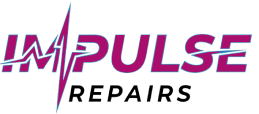At Impulse Repair in Kapolei, Hawaii, we often see recurring issues with aftertreatment systems that can cause significant downtime and costly repairs if not properly managed. Here are the top five common aftertreatment system issues and how to prevent them.
Diesel Particulate Filter (DPF) Clogging
What causes DPF clogging?
Diesel Particulate Filters are designed to capture soot and other particulates from the exhaust. Over time, these filters can become clogged, especially if the truck frequently operates in low-speed or stop-and-go conditions where the exhaust temperature is too low to burn off the trapped particulates. This process is known as passive regeneration.
How do I prevent DPF clogging?
To prevent DPF clogging, ensure that your truck undergoes regular regeneration cycles. This can be achieved by driving at highway speeds for extended periods, which allows the exhaust temperature to rise sufficiently to burn off the accumulated soot. Additionally, keeping an eye on the DPF pressure sensor readings and scheduling forced regeneration when necessary can help maintain optimal filter performance.
Why is this important?
A clogged DPF can lead to increased back pressure, reduced engine performance, and increased fuel consumption. Ignoring DPF maintenance can also result in costly repairs or replacements.
Exhaust Gas Recirculation (EGR) Valve Issues
What causes EGR valve problems?
The EGR system recirculates a portion of the exhaust gases back into the engine to reduce nitrogen oxide (NOx) emissions. Over time, soot and carbon deposits can build up in the EGR valve, causing it to stick or fail.
How do I prevent EGR valve issues?
Regular maintenance and cleaning of the EGR system are crucial. At Impulse Repair, we recommend periodic inspections and cleaning of the EGR valve and cooler. Using high-quality fuel and performing regular oil changes can also reduce the buildup of carbon deposits.
Why is this important?
A malfunctioning EGR valve can lead to poor engine performance, increased emissions, and potential engine damage due to elevated combustion temperatures.
Selective Catalytic Reduction (SCR) System Failures
What causes SCR system failures?
The SCR system reduces NOx emissions by injecting Diesel Exhaust Fluid (DEF) into the exhaust stream, where it reacts with NOx to form harmless nitrogen and water. Common issues include DEF contamination, crystallization, and injector failures.
How do I prevent SCR system failures?
To prevent SCR system failures, always use high-quality DEF and store it properly to avoid contamination. Regularly inspect and clean the DEF tank and lines. At Impulse Repair, we recommend checking the DEF injector for proper operation and signs of crystallization.
Why is this important?
SCR system failures can lead to increased emissions, reduced fuel efficiency, and potential fines for non-compliance with emissions regulations. Addressing these issues promptly ensures your truck remains roadworthy and environmentally compliant.
Diesel Oxidation Catalyst (DOC) Inefficiencies
What causes DOC inefficiencies?
The DOC converts carbon monoxide (CO) and hydrocarbons (HC) in the exhaust into carbon dioxide (CO2) and water vapor. Over time, the catalyst material can become contaminated or degraded, reducing its efficiency.
How do I prevent DOC inefficiencies?
Regularly inspect and clean the DOC. At Impulse Repair, we recommend using only high-quality fuel and lubricants to minimize contaminants. Scheduled maintenance should include checking the DOC for signs of degradation or contamination.
Why is this important?
A failing DOC can result in increased emissions and reduced overall efficiency of the aftertreatment system. Ensuring the DOC is functioning properly helps maintain compliance with emissions standards and improves fuel economy.
Sensor Failures
What causes sensor failures?
Aftertreatment systems rely on various sensors, including temperature sensors, pressure sensors, and NOx sensors, to monitor and control emissions. These sensors can fail due to exposure to high temperatures, contamination, or electrical issues.
How do I prevent sensor failures?
Regularly inspect and clean sensors as part of your maintenance routine. At Impulse Repair, we recommend checking sensor connections and wiring for signs of wear or damage. Using high-quality replacement parts and ensuring proper installation can also extend sensor life.
Why is this important?
Faulty sensors can lead to incorrect readings, resulting in improper functioning of the aftertreatment system. This can cause increased emissions, reduced engine performance, and potential damage to other components.
FAQs
What are the common signs of aftertreatment system issues?
Common signs include increased fuel consumption, reduced engine performance, warning lights on the dashboard, and visible exhaust smoke. If you notice any of these symptoms, it’s important to have your truck inspected by professionals at Impulse Repair.
How often should I perform maintenance on my aftertreatment system?
Regular maintenance schedules vary depending on the manufacturer and operating conditions. However, a general rule of thumb is to have the aftertreatment system inspected every 20,000 to 50,000 miles.
Can I perform aftertreatment system maintenance myself?
While basic maintenance tasks like checking DEF levels and cleaning sensors can be performed by the truck owner, more complex tasks should be handled by professionals. We offer comprehensive aftertreatment system maintenance and repairs to ensure your truck operates efficiently and complies with emissions regulations.
Recap
Maintaining your semi-truck’s aftertreatment system is essential for performance, fuel efficiency, and compliance with emissions standards. By understanding these issues and implementing preventive measures, you can extend the life of your truck. At Impulse Repair, we’re dedicated to keeping your truck running smoothly on the roads of Kapolei and beyond. Schedule your maintenance appointment today and experience the difference in service and expertise.

